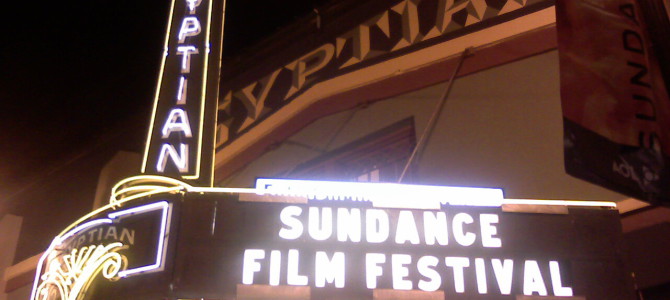The Sundance Film Festival is one of the few international film festivals that promote the cross between art and journalism. It is the largest independent film festival in the United States, celebrating independent artists and their thought-provoking productions. The festival’s popularity has become a source of motivation for artistic inspiration, and independent filmmaking. The 2016 Sundance Festival was no different than previous festivals, showcasing works that exhibited unusual stories of often marginalized people.
Three documentaries “The Land of Enlightened,” “Plaza de la Soledad,” and “The Lovers and the Despot”, focus on unusual stories in some very difficult terrains. “The Land of the Enlightened” documents a band of preteen bandits in rocky northeastern Afghanistan. These armed children often put themselves in perilous situations, removing Soviet era mines to sell as explosives for miners. The film also documents them marauding and stealing precious stones from miners and merchants. As Brandon Harris writes in Al Jazeera, “The film’s artistry is incredible; its ethics, less clear.”
Directed by Robert Cannan and Ross Adam, “The Lovers and the Despot” recounts the kidnapping of a South Korean couple by deceased North Korean dictator Kim Jong Il. Choi Eun-hee, a popular South Korean actress and her husband, director Shin Sang-ok were coerced with the duty of improving North Korean cinema. Although a great deal of the film documents interviews of Shin Sang-ok, it often cuts back to reels of their time held captive in North Korea. “The Lovers and the Despot” acts as a documentary-thriller of sorts, intertwined with the kidnapped couple’s earnest romance.
In a very intimate portrayal of the daily lives of young women in Mexico City, director Maya Goded delicately showcases the plight of a group of career prostitutes in “Plaza de Soledad.” Throughout the film, the women recall traumatic, and sometimes violent episodes in their lives, all well developing an unbreakable sisterhood.
A handful of films this year focuses on the political and social strife faced by communities in the United States. “Kate Plays Christine,” directed by Robert Greene, narrows in on the subject of performance and acting in the context of the disturbing public suicide of Christine Chubbuck. Chubbuck, a journalist in Florida was frustrated over the media’s excessive coverage of violence and death. She decided to end her life on a live report.
Another film, Tim Sutton’s “Dark Night” confronts the public nightmare of gun violence. As an allusion to the movie theatre shooting in Aurora Colorado, it alternates between the fragmented lives of real people in Sarasota, Florida with a journalistic approach toward the Aurora shootings that took place toward the a screening of The Dark Knight Rises. Richard Brody writes in the New Yorker, “The film’s suburban moods are haunted by violence.” Both films depict the ugly realities of gun violence in Florida by overlapping factual tragedies with fictional dramatizations. Sundance Films always leave viewers with an assortment of emotions. The festival values expression, with the strongest documentaries blending the reality with journalism, and artistic dramatizations. Film lovers and socially aware individuals should always look to the Sundance Festival for some deep and engaging cinema. Now that they have screened at Sundance, look out for screenings in neighborhoods near you.

